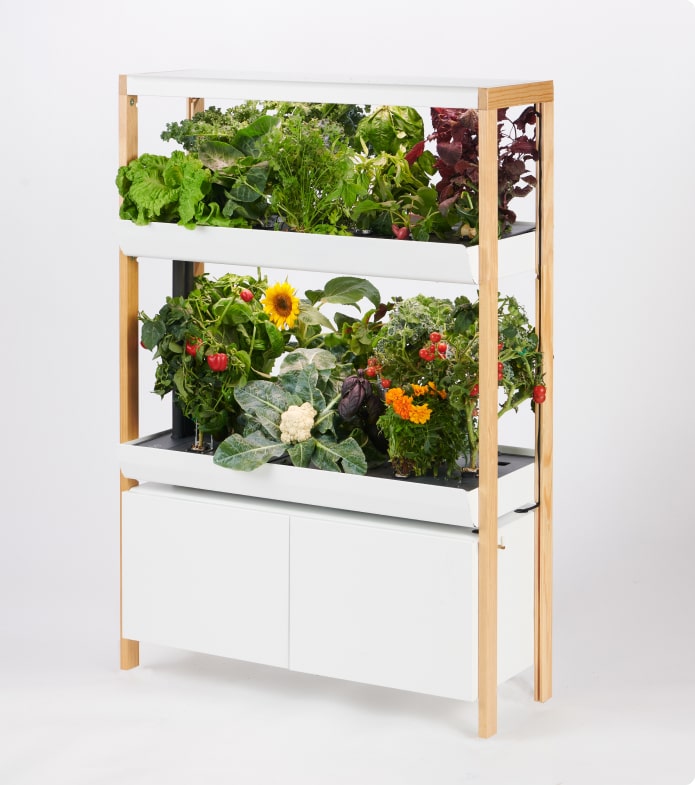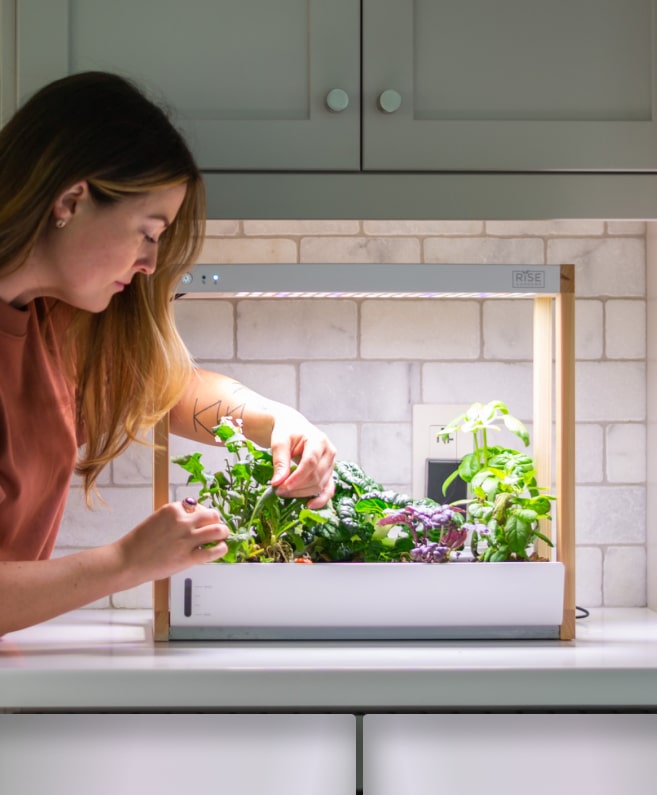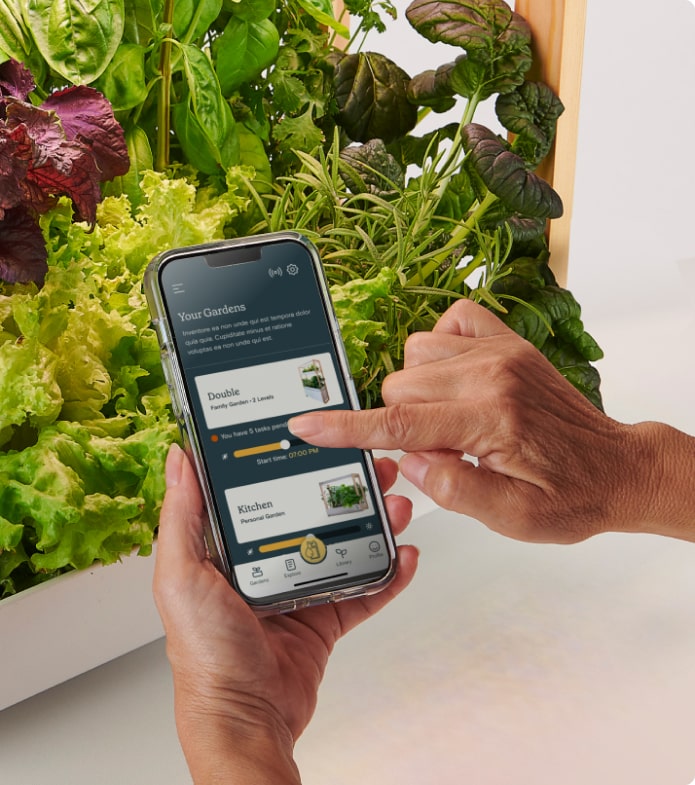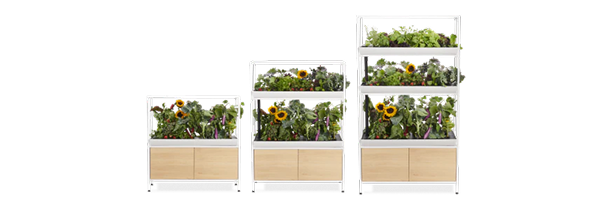The Future of Gardening is Hydroponics
Design
-
Aesthetic
Consider your interior design, where the garden will be placed in your home, and how it integrates into your design aesthetic. -
Materials
Higher-quality gardens will avoid PVC pipes and recycled plastic for the main structure. Metal, wood, and ceramic materials are the best to ensure food safety and the maximum lifetime of your garden. -
Cleaning
Indoor gardens need occasional cleaning. Your garden should be easy to clean with fast disassembly and dishwasher-safe parts. The main water reservoir should be easy to lift, fast to refill, and quick to clean.

Size
-
Garden Footprint
Some gardens, like countertop gardens , are designed for your kitchen counter, whereas vertical and modular gardens require floor space, similar to a bookshelf. -
Number of Plants
When selecting a garden, it’s important to determine how much you want to grow. The more vegetables you want, the larger unit you will need. However, for smaller plant varieties like herbs and microgreens, a countertop garden would work perfectly. -
Plant Height
Some gardens allow you to grow fruiting vegetables, microgreens, rooted plants and vining plants–while others are not able to support those. Make sure you determine your garden has the vertical height to allow the types of plants you want to grow.

Smart Tech
-
Smart Control
More advanced gardens will give you full control of the timing and intensity of your lights, and allow you to input water quality data to adjust your nutrient levels. -
Tap Water Management
Because all tap water is different, compensating for pH variances and the extra (or lack of) minerals in your water is critical. Higher-end garden systems will handle this by adjusting nutrients and pH through their smart technology. -
Plant Management
Some garden systems have apps that trigger notifications suggesting pollinating, trimming, thinning, harvesting and other critical tasks. These apps increase your success rates and yields.

Other considerations when choosing a garden
-
When shopping for gardens, make sure to look into seed availability, variety and quality. There should be a large selection of seeds to select from so you can grow what you want, when you want it. A substantial library of 50+ plants should be offered year-round with access to dwarf varieties of tomatoes, peppers, eggplant, and other classic fruiting plants.
Learn More -
If you want to grow larger plants like tomatoes and peppers, there should be a method to stake those plants so they don’t fall over. Because hydroponic plants have root structures that aren’t anchored in soil, they tend to fall over without proper support. Make sure your garden has supporting accessories such as stands and trellises to best support your plants.
Learn More -
For any indoor garden, you will want to pay close attention to the lights since they are the main food source for your plants. Professional lights will be a mixture of full spectrum (white) and focused spectrum (red and blue). The key measurement is PAR value, which stands for Photosynthetic Active Radiation, not watts. You want PAR of 350 (measured 6” from the light) to grow all types of plants. In order to maximize growth in your garden, you should be able to change the light hours of your garden so that you can increase light in the winter months when natural light is low, and decrease in the summer when natural lighting is strong.
Learn More -
The improvements in sustainability offered by hydroponic technology stem from reducing food miles, decreasing water usage and eliminating nutrient run-off. If sustainability is important to you, consider how hydroponic companies are supporting this mission including their choice of garden materials, minimizing plastic usage and utilizing sustainable packaging solutions.
Learn More -
Your indoor garden should have an extended warranty to ensure that your garden, with all of its electronics, pumps and plumbing, functions for many years to come. A high-quality garden should have a minimum of a 2 year warranty on all hardware as well as providing a 100% germination guarantee for your plants. Also consider the advantages of having access to a community to join and learn from. Many companies create customer groups to help you connect with other gardeners to share your gardening journey.
Learn More




